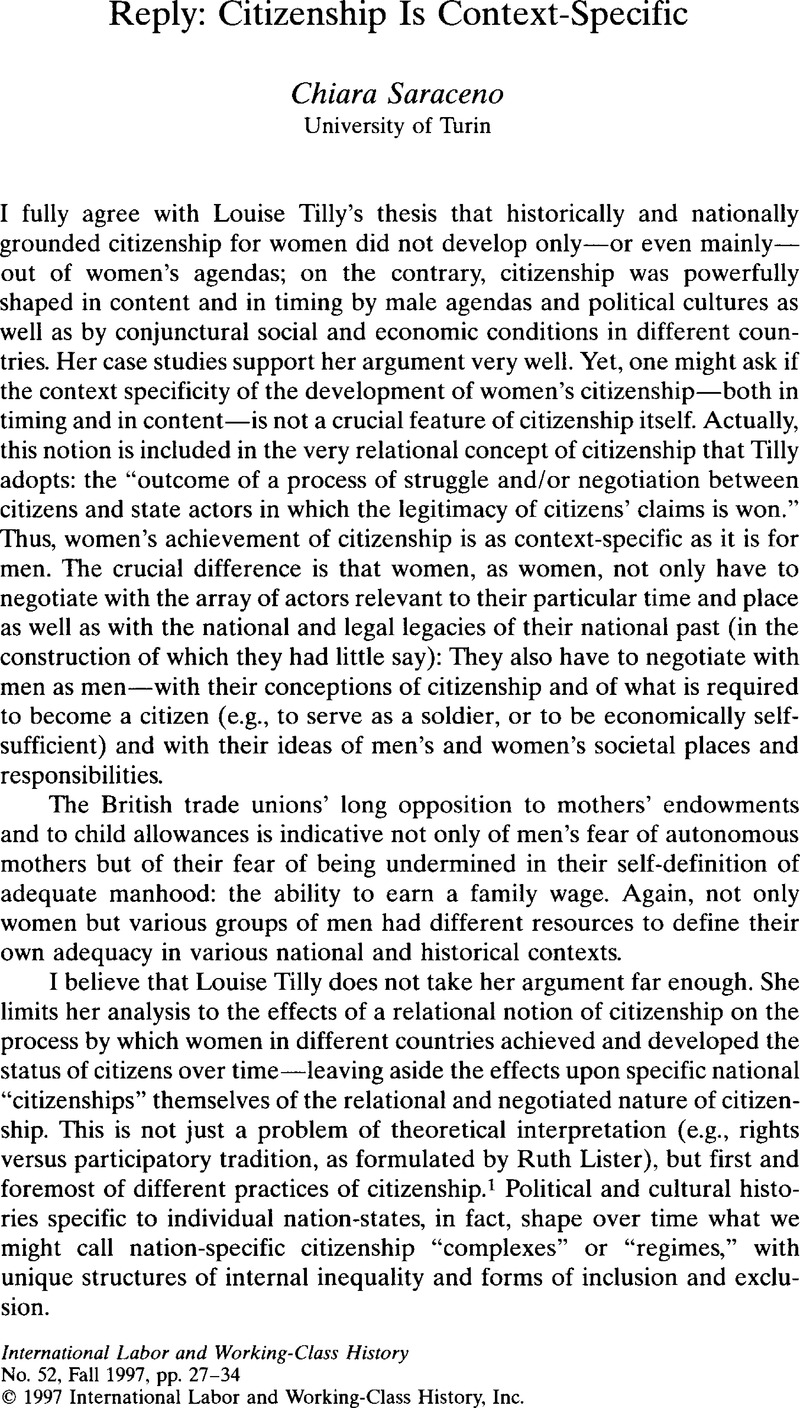Article contents
Reply: Citizenship Is Context-Specific
Published online by Cambridge University Press: 16 December 2008
Abstract

- Type
- Scholarly Controversy: Women, Work and Citizenship
- Information
- Copyright
- Copyright © International Labor and Working-Class History, Inc. 1997
References
NOTES
1. Lister, Ruth, “Citizenship: Towards a Feminist Synthesis,” paper presented at the Women and Citizenship Conference,University of Greenwich,July 16–18, 1996.Google Scholar
2. See Martin, Claude, “Protection Sociale et Protection par la Famille en Europe du SudQuelles Specificités?,” paper presented at “Comparing Southern Welfare States,” a conference organized by Mission Recherche Experimentation(MIRE) at The European University, Florence, February, 1996.Google Scholar
3. See Zincone, Giovanna, Da sudditi a cittadini (Bologna, 1990).Google Scholar
4. The controversial question of whether it is possible to determine “objective” women's interests has been extensively debated; see, for example, the essays collected in The Political Interests of Gender, ed. Jones, Kathleen and Jonasdottir, Ana (London, 1988).Google Scholar
5. As Ira Katznelson points out, this issue is at the core of Theda Skocpol's Protecting Soldiers and Mothers: The Political Origins of Social Policy in the United States (Cambridge, 1992).Google Scholar See his comments in “Conference Panel: On Theda Skocpol's Protecting Soldiers and Mothers: The Political Origins of Social Policy in the United States,” Studies in American Political Development 8 (1994): 132–39, particularly 135. I am surprised that Tilly makes nomention of Skocpol's study in her essay.Google Scholar
6. Skocpol, , “Protecting Soldiers and Mothers.”Google Scholar
7. Fraser, Nancy, “From Redistribution to Recognition? Dilemmas of Justice in a Post Socialist Age,” New Left Review 212 (1995): 69.Google Scholar
8. Pedersen, Susan, Family Dependence and the Origins of the Welfare State: Britain and France (Cambridge, 1993).Google Scholar
9. Knijn, Trudie, “Fish without Bikes: Revision of the Dutch Welfare State and its Consequences for the (In)dependence of Single Mothers,” Social Politics 1 (1994):83–105.CrossRefGoogle Scholar
10. Saraceno, Chiara, “The Ambivalent Familism of the Italian Welfare State,” Social Politics 1 (1994):60–82.CrossRefGoogle Scholar
- 2
- Cited by




